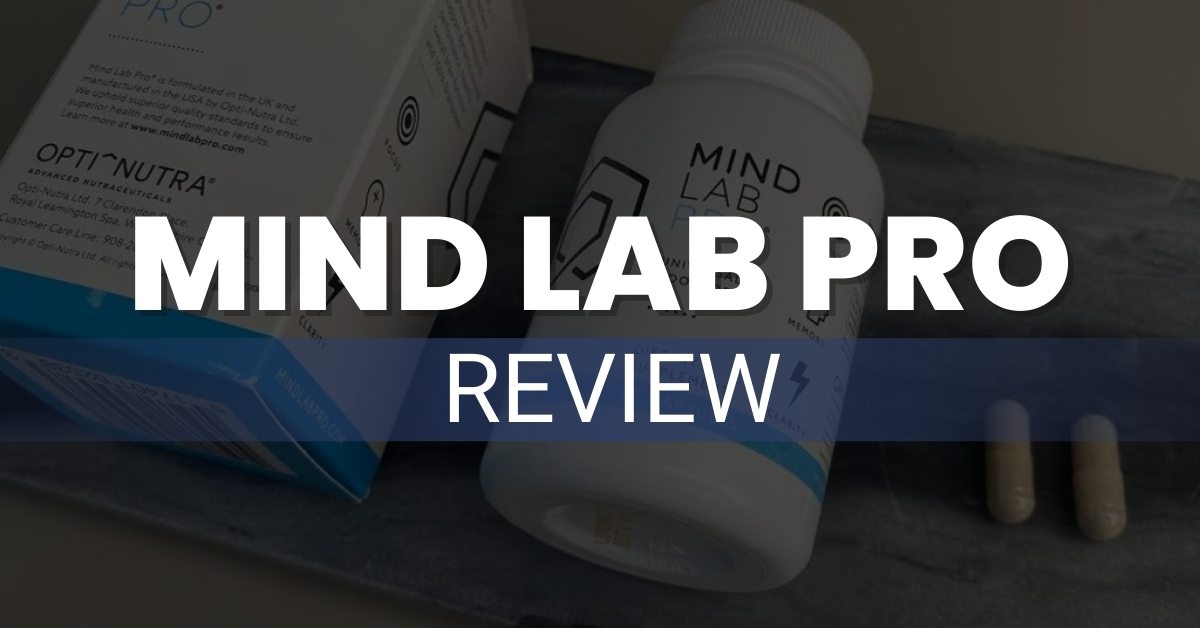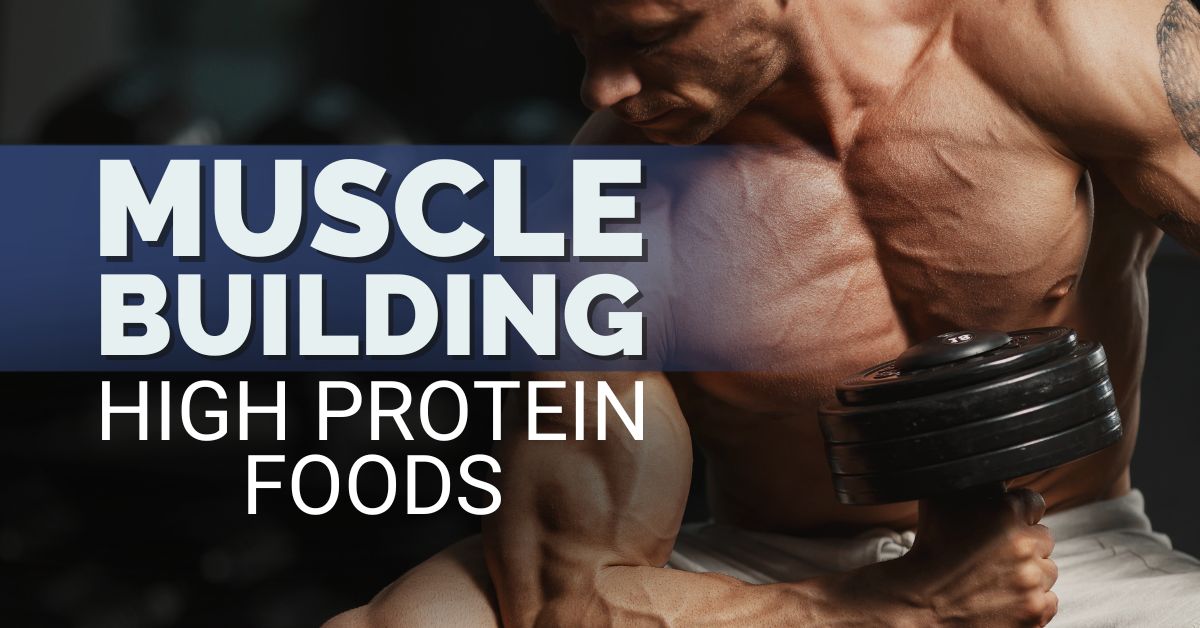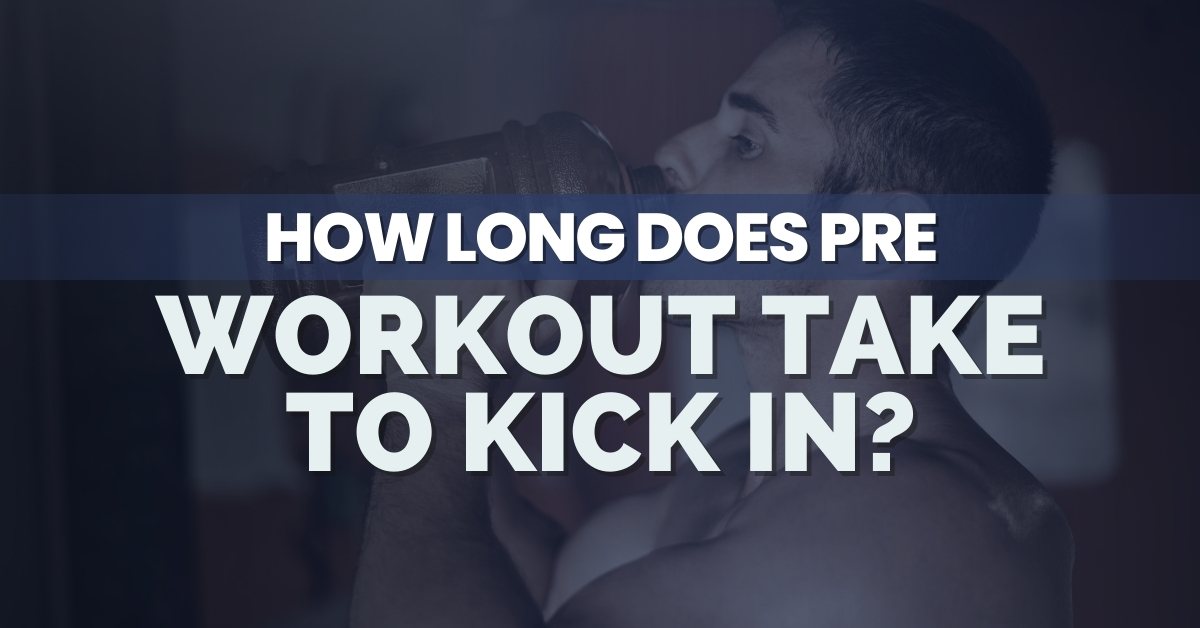
How Long Does Pre-Workout Take To Kick In? All the Facts You Need to Know!
We’ve all been there. You’re just starting your fitness journey but want to see results sooner rather than later. Or, perhaps you are recovering from an injury, have hit a plateau, or want to maintain more youthful fitness levels.
In any of these cases, you may benefit from an effective pre-workout supplement. However, timing can significantly affect the results you see. Here, we look at how pre-workouts do their thing and when to time them for the most significant effect.
What Is a Pre-Workout?
A pre-workout supplement is designed to give you a short-term performance boost at the gym or when playing your favorite sport. It may increase your energy levels, strength, endurance, or circulation. Reputable pre-workout supplements are made with all-natural, legal ingredients and have few or no side effects.
Pre-workouts differ from intra-workout supplements, which are meant for during your training session. However, they overlap, with both supplements often including ingredients such as B vitamins. Protein powders are ideal for after the workout, as they aid recovery and muscle growth.
How Long Does Pre-Workout Take To Kick In?
If you’re wondering, “How soon does a pre-workout kick in?” You will generally wait 30-60 minutes to see results. Caffeine is typically one of the fastest ingredients. Others can take several weeks to see their full benefits, as they need time to build up.
Factors Affecting Your Pre-Workout Kick-in
Whether or not you have eaten before taking your pre-workout, your level of caffeine tolerance, and interactions with food and medication can affect how long it takes to kick in.
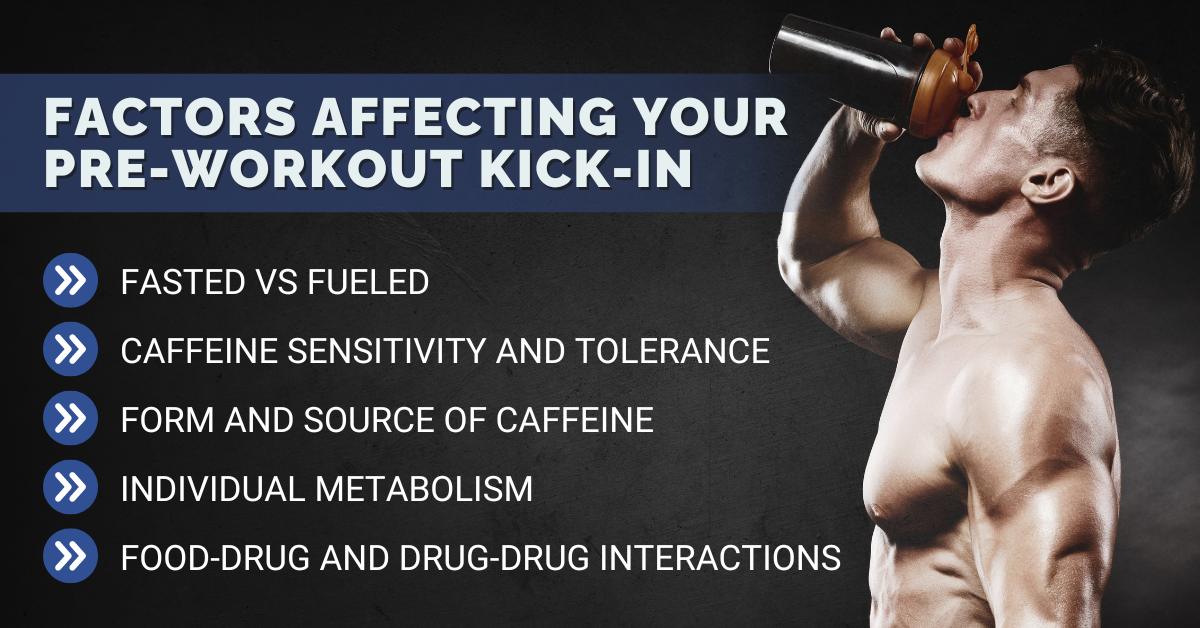
Fasted vs Fueled
Taking your pre-workout supplement on an empty stomach may yield faster results, but they will likely wear off faster.
Caffeine, for example, can take 15 minutes to 2 hours to reach peak levels, with meals pushing this timeframe to the upper range [1]. A meal or substantial snack will generally slow absorption of your pre-workout as it competes with food to enter your bloodstream.
Additionally, some types of fiber can not only slow but even reduce the rate of nutrient absorption because they are not digested and may carry nutrients you could otherwise absorb with them [2].
Caffeine Sensitivity and Tolerance
Genetic factors can affect how sensitive you are to caffeine. Some gene variations that affect how you use adenosine, a neurotransmitter that caffeine influences, are related to caffeine tolerance. You may be startled far more easily or be more prone to anxiety in general after caffeine intake if you have one of these [3].
Long-term daily use of caffeine can make you build a tolerance as your liver becomes more efficient at processing it. However, much of the tolerance you can build centers around perceived energy, blood pressure, and heart rate. Studies show you may not build a tolerance to its effects on sleep [3].
Form and Source of Caffeine
As for the type of caffeine, capsules, powders, and drinks may have similar absorption rates that vary by individual factors. You can expect these to peak anywhere from 15 minutes to 2 hours, with 30-60 minutes being a more typical timeframe.
Caffeine chewing gum has the most rapid onset as it can be absorbed through your cheeks and under your tongue. There’s an initial spike in 10 minutes, with the rest absorbed at the normal rate [1].
Individual Metabolism
Genetic variations can explain why you can handle a double espresso while your friend cannot tolerate more than a cup of green tea.
Certain variations in the gene that codes for the adenosine receptor, which caffeine affects, can make you more or less sensitive to its stimulant properties. If you can’t stand an espresso and neither can many of your family members, consider a stim-free supplement or a lower dose [3].
Food-Drug and Drug-Drug Interactions
Some medications can affect caffeine clearance. For example, some that widen your airways may halve the rate of caffeine clearance, while others can increase the half-life by 10 times. Quinolone antibiotics and antifungals have varying effects, from no change to a 70% increase in half-life.
Additionally, oral contraceptives can increase half-life by 40%. Taking estrogen may reduce the protective properties of caffeine on your brain, too, but a review didn’t specify if hormone replacement therapy affects the half-life [3].
Moreover, some foods may contain smaller amounts of pre-workout ingredients, such as tyrosine, taurine, and caffeine, which could enhance your results.
When To Take Pre-Workout To Make It Hit Faster
We recommend taking a pre-workout with caffeine, tyrosine, and/or taurine 30-60 minutes before you work out. If beta-alanine and creatine are your preferred ingredients, it can take up to a month to see significant results.
How Can I Make My Pre-Workout Work Faster?
It’s best to take a pre-workout on an empty stomach. This way, it will be absorbed faster, and food components such as fiber are less likely to impair absorption. Although fitness enthusiasts who search, “How long does pre-workout take to kick in on an empty stomach?” won’t find an “official” answer, many say it takes 30 minutes or less to notice effects.
If possible, choosing a chewing gum formulation could help you absorb the ingredients faster. In this case, they will be partially absorbed through your cheeks and under your tongue.
You can also explore subreddits like r/Supplements and r/askfitness where users share their own experiences about workout regimes and supplementation.
How Long Does Pre-Workout Last?
The question, “How long does pre-workout take to wear off?” has no singular answer. It depends on the ingredients you are asking about.
Most pre-workout supplement ingredients benefit you for no more than a few hours. Some blood levels may rapidly drop within an hour or 2 of reaching peak levels, while others have cumulative, long-term benefits. These would take a few weeks to wear off.
Common Pre-Workout Ingredients
Common ingredients in pre-workout supplements include caffeine, citrulline, beta-alanine, creatine, taurine, and tyrosine. These have the largest bodies of evidence to back them up.
Caffeine
Caffeine is the most famous stimulant and performance enhancer. A central part of many food cultures, it is enjoyed by over 80% of American adults. It works by supporting dopamine’s motivating, stimulating properties and blocking chemicals with sedative effects [1]. Here are some of its benefits in real life:
- Caffeine is so widely researched as a performance enhancer that one review was titled “Not Another Caffeine Effect on Sports Performance Study.” Studies in this review included one trial in which caffeine improved performance in squat and bench press exercises. In another, caffeine increases time to exhaustion and oxygen use during running [4].
- However, another study involving rugby players found that caffeine only gave them short-term gains in strength and total weight lifted. Once the caffeine had worn off, the caffeine group did not see a more significant increase in muscle and strength compared to the placebo.
Citrulline
Citrulline boosts nitric oxide, a substance that widens the blood vessels and allows for increased delivery of oxygen and nutrients. Now, let’s look at how citrulline is used in a pre-workout.
- Citrulline is often included in pre-workouts as citrulline malate. Malate, or malic acid, is also part of your cells’ energy production cycle. Adding more malate to this cycle is thought to boost energy levels, but more research is needed [5].
- One clinical study showed that 8 grams of citrulline malate boosted muscle power output by around 15%. This trial compared participants’ results before and during citrulline malate use, so there were no other differences.
- In another, citrulline malate increased the average number of reps volunteers could perform in a strength training program. A third found that citrulline increased the number of chin-ups and pushups, with their average pushup count rising from 89 to 98. Both men and women can respond well to citrulline.
Successful studies on citrulline have instructed volunteers to take each dose around 1 hour before the planned exercise routine. The best dose is 6 to 8 grams, depending on your body weight, but blood levels still drop around 30 minutes after the peak.
Beta-Alanine
Beta-alanine is a version of the amino acid alanine. Unlike caffeine, it appears to have both short- and long-term benefits. Some recommendations state you should take 4 to 6 grams for at least 2 to 4 weeks to see the best results [6]. Beta-alanine can improve your physical performance in so many ways:
- One way beta-alanine works is that it boosts carnosine levels in your muscles. Carnosine is necessary for energy production and is found in meat, so beta-alanine may be useful for vegetarians. Research on soldiers shows that carnosine can improve jump power and speed when carrying a “casualty.”
- Beta-alanine may increase dopamine, which can improve mental performance. A study on soldiers found that it improved marksmanship, reaction times, and cognitive function and reduced the number of mistakes. Beta-alanine could even protect the brain, as lab research demonstrates that it could halve brain injury risk after exposure to an explosion.
- Others have found protective effects during heat stress, including less inflammation and the protection of brain-derived neurotrophic factor (BDNF) production. Heat stress is a common danger to endurance athletes, so we recommend considering a pre-workout with beta-alanine if you compete in marathons, triathlons, or similar events [6].
Creatine
Creatine is another pre-workout ingredient that could work better over more extended periods of use. Like beta-alanine, there is enough evidence that the International Society of Sports Nutrition (ISSN) has published guidelines on how to use it. These guidelines involve a loading dose of 0.3g/kg of body weight, followed by 3-5g per day for maintenance. Here’s how the ingredients can help you:
- Multiple trials demonstrate a 5-15% increase in maximum muscle power generated and work performed when volunteers are instructed to give strength training their maximum effort. Long-term results include 5-15% more strength and performance improvements. Following the correct loading and maintenance protocol may double your muscle gains [7].
- Creatine’s potential is diverse enough to include rare conditions such as Ehlers-Danlos Syndrome. A case study describes one patient as doubling the length of time she could walk without rest, from 10-15 minutes to 20-25 minutes. She was also able to wash and brush her hair without resting in between after 1 month of supplementation [8].
Taurine
Taurine is an amino acid that doesn’t form proteins, but your body still requires it for energy production and its antioxidant effects. It’s one of the faster-acting pre-workout ingredients, with bloodstream levels rising in about 10 minutes. It can help you exercise in the following ways:
- The effects of taurine include increasing energy production from carbs and fat, reducing muscle damage, and boosting the number of your cells’ energy-producing components.
- Clinical results include increased muscle power and faster recovery after exercise. One trial found an increase in time to exhaustion by 10% and a lower core temperature, pointing to protection against heat stress [9].
Tyrosine
Tyrosine is the amino acid your body uses to make dopamine. Dopamine enhances motor speed and control, possibly by its ability to help you perceive making an effort as worthwhile at both the conscious and subconscious levels. Here’s a tyrosine use case:
- One study tested a combination of tyrosine, caffeine, and L-theanine on athletic performance. The supplement significantly improved movement accuracy even during exercise to exhaustion, with more targets accurately hit [10].
Magnesium
Magnesium supports energy levels, muscle function, and recovery, making it beneficial before or after exercise:
- As a key electrolyte, magnesium aids in the production of ATP, the molecule responsible for capturing energy from food to power the body.
- Magnesium helps relax muscles and regulate contractions, reducing lactic acid build-up and muscular tension. It also promotes faster muscle recovery after physical activity.
- Magnesium plays a role in maintaining healthy energy metabolism, which is crucial for endurance athletes.
- Magnesium citrate and glycinate are highly absorbable forms. Powder magnesium is often easier to absorb than tablets, as they dissolve more readily in liquids.
Types of Pre-Workout Supplements
Pre-workout supplements come in many formulations. These include stimulant-free, carb-enhanced, and non-powder varieties.
Stim-Free Pre-Workouts
Stimulant-free pre-workouts do not contain caffeine. You won’t get persistent jitters from these, but you are less likely to notice them taking effect before you get started.
Common ingredients in stimulant-free varieties include tyrosine, beta-alanine, and citrulline. Many will feature nootropics such as medicinal mushrooms or B vitamins used in cellular energy production. It’s important to remember that some medications can still interact negatively with stim-free supplements, so carefully check every ingredient list.
We recommend stim-free supplements if you have a known or suspected genetic sensitivity to caffeine. Additionally, if medications such as certain bronchodilators or the contraceptive pill have made caffeine’s effects last longer, you may prefer stim-free types.
One of the best pre-workout supplements with no stimulants found is Blackwolf’s Fruit Punch flavored pre-workout. Blackwolf’s caffeine-free Fruit Punch pre-workout uses DMAE and huperzine to boost focus.
Carb-Enhanced Pre-Workouts
Carbohydrates are broken down into glucose, which your muscles and all other tissues rely on for energy. Although fat plays a role at lower intensities, carbs become more important with high-intensity activity.
Research demonstrates that ultra-marathon runners are faster with carbohydrate loading. Correct carb loading can reach up to 10-12 grams per kilogram of body weight during the 2 days leading up to your event, double the recommended amount during your regular training schedule [10].
During long events such as marathons and ultramarathons, consuming carbs in any way possible can prevent muscle loss and reduce fatigue.
Carb-enhanced pre-workouts, or adding carbs to your supplement regimen, can help if you are training for endurance. Foods such as rice, beans, fruit, and starchy vegetables all help with carb loading. During the event, you may need something very easily digestible, such as candy or supplemental gel formulations.
Non-Powder Pre-Workouts
If you can’t stand the taste or texture of powders, capsules can be a convenient way to take pre-workouts.
Chewing gum is a great option if you don’t want powders but have difficulty swallowing pills. Caffeine gum can give you a substantial spike in your bloodstream at 10 minutes and a second peak at 50 minutes when absorbed in your digestive tract.
Capsules are another alternative to powders that won’t leave residue in your water bottle or have an odd flavor. Although they only require a small amount of water, do not fall into the habit of drinking less with capsules. Even if you only lose 2% of your weight from dehydration, your performance will significantly worsen [10].
Key Benefits of Pre-Workout
Pre-workout supplements may boost your strength and power while also improving psychomotor performance.
Increased Energy and Focus
Improved energy and focus means you can perform better at sports that require coordination and fast reaction times. You may feel that you aren’t as mentally fatigued afterward, too.
A critical benefit of pre-workout supplements is their potential to improve energy. In a small trial, a combination of caffeine, tyrosine, and L-theanine was demonstrated to boost movement accuracy [11].
Another study tested the effects of pre-workout on physical performance. Here, the time to exhaustion was considerably longer, and volunteers could run 12.5% longer. They also reported better energy and focus on average. Here, creatine’s ability to enhance cellular energy availability and BCAAs’ serotonin-boosting potential were said to play a role [12].
If you’re looking for more energy, the best overall pre-workout supplement we found was XWERKS Ignite. It features caffeine, beta-alanine, tyrosine, citrulline, and vitamins B6 and B12.
Increased Muscular Endurance
Better endurance can maximize your muscle and strength gains, as you can handle more reps. Caffeine is one of the most well-known ingredients for improving endurance. It reduces perceived fatigue and can help you burn fat for energy, protecting your muscle mass. Additionally, glucuronolactone can boost endurance capacity.
Crazy Nutrition’s Intensive Pre-Train may benefit endurance. This is thanks to its combination of caffeine, beta-alanine, citrulline, taurine, and considerable doses of B vitamins. Supplements with magnesium like XWERKs can also enhance muscle function.
Increased Strength and Power
Pre-workout supplements may also increase muscle power during workouts, similar to testosterone boosters. A trial testing a blend that included beta-alanine, tyrosine, caffeine, vitamin B3, and taurine showed higher peak and mean power. Mean power rose from 538 to 569 watts, while peak power increased from 723 to 782 watts [13].
The combination of ingredients was likely more responsible for these benefits than any singular substance. Although branched-chain amino acids (BCAAs) were described as having limited evidence alone, caffeine, creatine, and BCAAs were found to boost strength in the short term. Beta-alanine protects muscles and their function from acid build-up.
Increased Muscle Pumps
Alongside power output, a pre-workout supplement could also help you increase the number of reps.
A trial found that supplementation with caffeine, BCAAs, taurine, creatine, and glucuronolactone increased reps and total exercise volume compared to the placebo. Better yet, the volunteers’ growth hormone levels were higher, suggesting they would also experience improved muscle growth [14].
Top 3 Pre-Workout Supplements
When boosting your workout performance, the right pre-workout supplement can make all the difference. Here’s a quick overview of the top 3 pre-workout supplements that can help you maximize your gains:
1. XWERKS Ignite – Best Overall
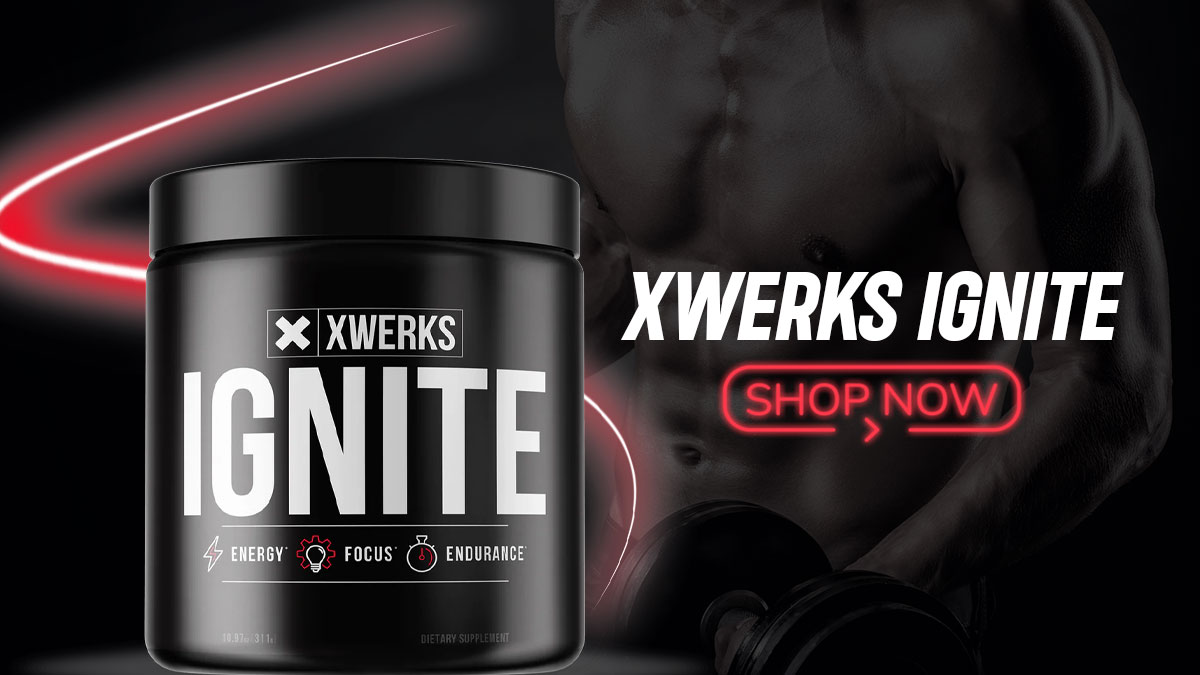
XWERKS Ignite’s unique pre-workout formula includes 3 groups of ingredients for energy (caffeine and B-vitamins), focus (DMAE, tyrosine, Rhodiola), and endurance (beta-alanine and citrulline). These work in tandem to supercharge your workout performance for impressive results.
Available flavors include Watermelon, Orange, Blue Raspberry, and Green Apple. The supplement costs $49 per tub (30 servings), but the subscribe and save option shaves 5% off this one-time purchase price.
Although XWERKS offers the lowest subscribe & save discount among the products we reviewed, new users can get an additional 20% cash back on their first order.
User Reviews
XWERKS Ignite is making waves on Amazon with a solid 4.1 out of 5 rating! Many customers call it the best pre-workout they’ve ever had. They love the great flavor and the clean energy boost it delivers, all without any crash. One user even swears by it for energy during tennis matches [15] [16]. However, not everyone’s thrilled—another customer was disappointed by the packaging, noting that their product arrived with powder spilled all over the bag [17].
2. Crazy Nutrition Intensive Pre-Train – Best for Sustained Energy
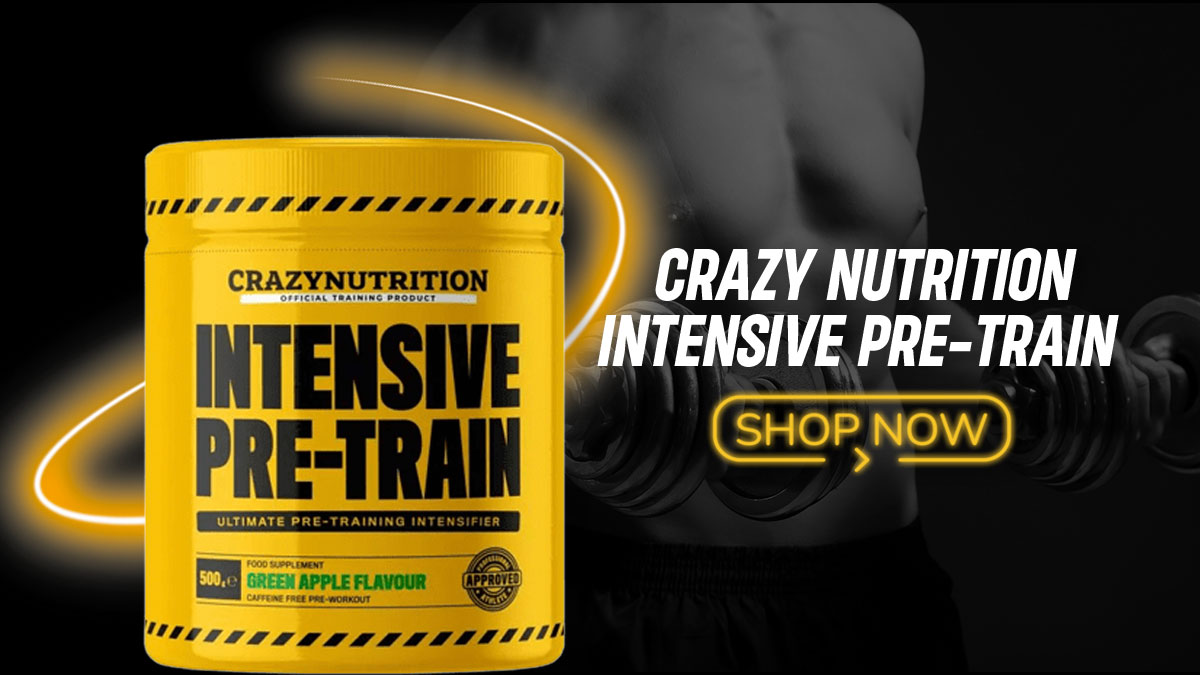
Crazy Nutrition’s Intensive Pre-Train features 13 natural powerhouse ingredients with 3 delicious flavors: Blue Raspberry, Green Apple (caffeine-free), and Fruit Punch. It includes En-Xtra to help you avoid the jitters and crashes often associated with caffeine, promoting a more sustainable energy boost for consistent performance. A 600g bag of Pre-Train, including about 60 servings, costs $64.99, but subscribers get 30% off.
User Reviews
Users are excited to share Crazy Nutrition Intensive Pre-Train with the world with a 4.1 out of 5 rating on Trustpilot. Customers are buzzing about the fast service and effective, jitter-free products [18]. However, not everyone is pleased—one user reported never receiving their order and expressed frustration with the company’s customer service [19].
3. Blackwolf – Caffeine-Free Option
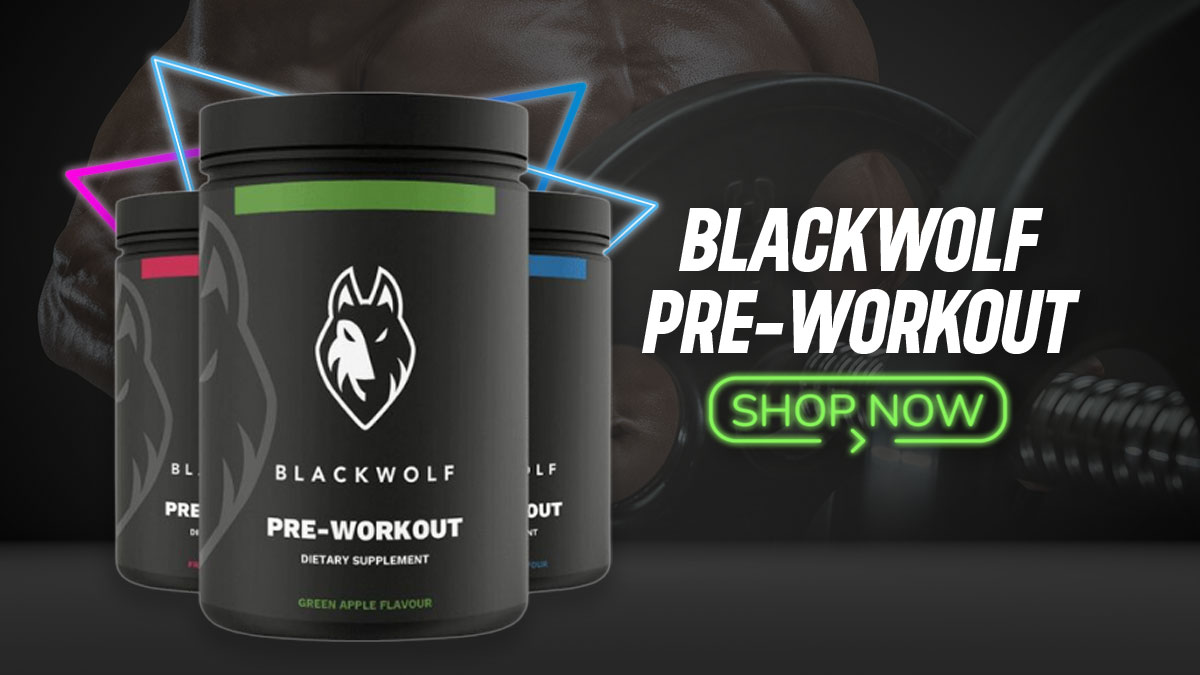
Blackwolf offers its pre-workout formula in the same flavor as Intensive Pre-Train, but the caffeine-free option here is the Fruit Punch. A single tub costs $49.99, but you can subscribe and get 20% off, so you pay just $39.99.
User Reviews
Unfortunately, reviews for Blackwolf are hard to find online. For more insights, it might be best to ask friends or family who’ve tried the product. They could provide firsthand feedback.
FAQs on Pre-Workout
Here are some questions you may have before trying pre-workout supplements.
How Soon Does Pre-Workout Kick In?
Pre-workout ingredients may work in as little as 10 minutes or require a few weeks of supplementation. However, their peak effects should be expected between 30 and 60 minutes after taking them.
Can Pre-Workout Kick in 10 Minutes?
If your pre-workout contains a strong dose of caffeine or is taken as gum, you may feel more energetic after 10 minutes.
How Do You Know if Pre-Workout Is Working?
You may notice a boost to your energy levels before exercising, especially if the supplement contains caffeine. You can also keep an exercise diary to track your performance over time, starting before you begin the supplement.
Why Do You Have To Wait 30 Minutes After Taking Pre-Workout?
A 30-minute period will most likely give your blood levels of many common pre-workout ingredients enough time to rise.
Is It Okay To Take a Pre-Workout Supplement Every Day?
We recommend only taking pre-workouts on days you exercise. If that’s every day for you, then you will likely benefit from daily use. However, many people enjoy strong amounts of caffeine daily, so this is likely okay.
Is It Bad To Take Pre-Workout on an Empty Stomach?
It’s perfectly acceptable to take pre-workout supplements on an empty stomach. Some people may experience digestive discomfort, and the caffeine may hit faster, but overall, it is sound.
How Long Does It Take for Pre-Workout To Kick In? Final Thoughts
Pre-workout supplements typically take 30-60 minutes to fully kick in. However, some ingredients and their formulations may take as little as 10 minutes, while others may not show their full effects for several weeks of regular use.
The benefits of pre-workout supplements appear to be well worthwhile. Studies show that they can improve mental energy, the number of reps you can do, and time to exhaustion, and they may even promote muscle development. Caffeine, beta-alanine, creatine, tyrosine, and BCAAs are some of the ingredients with scientific evidence to back up their claims.
To enjoy these short- and long-term benefits, you need to choose reputable, effective products. We recommend considering XWERKS Ignite, Crazy Nutrition Intensive Pre-Train, or Blackwolf.
References
- McLellan, Tom M et al. “A review of caffeine’s effects on cognitive, physical and occupational performance.” Neuroscience and biobehavioral reviews vol. 71 (2016): 294-312. doi:10.1016/j.neubiorev.2016.09.001
- Lattimer, James M, and Mark D Haub. “Effects of dietary fiber and its components on metabolic health.” Nutrients vol. 2,12 (2010): 1266-89. doi:10.3390/nu2121266
- Nehlig, Astrid. “Interindividual Differences in Caffeine Metabolism and Factors Driving Caffeine Consumption.” Pharmacological reviews vol. 70,2 (2018): 384-411. doi:10.1124/pr.117.014407
- Tallis, Jason et al. “Not Another Caffeine Effect on Sports Performance Study-Nothing New or More to Do?.” Nutrients vol. 14,21 4696. 7 Nov. 2022, doi:10.3390/nu14214696
- Gough, Lewis A et al. “A critical review of citrulline malate supplementation and exercise performance.” European journal of applied physiology vol. 121,12 (2021): 3283-3295. doi:10.1007/s00421-021-04774-6
- Ostfeld, Ishay, and Jay R Hoffman. “The Effect of β-Alanine Supplementation on Performance, Cognitive Function and Resiliency in Soldiers.” Nutrients vol. 15,4 1039. 19 Feb. 2023, doi:10.3390/nu15041039
- Behringer, Christopher R, and Shezda Afrin. “Creatine Monohydrate as an Effective Supplement for Muscular Fatigue in an Ehlers-Danlos Patient.” Cureus vol. 16,6 e61721. 5 Jun. 2024, doi:10.7759/cureus.61721
- Kurtz, Jennifer A et al. “Taurine in sports and exercise.” Journal of the International Society of Sports Nutrition vol. 18,1 39. 26 May. 2021, doi:10.1186/s12970-021-00438-0
- Zaragoza, Javier et al. “Effects of acute caffeine, theanine and tyrosine supplementation on mental and physical performance in athletes.” Journal of the International Society of Sports Nutrition vol. 16,1 56. 26 Nov. 2019, doi:10.1186/s12970-019-0326-3
- Ravindra, P V et al. “Nutritional interventions for improving the endurance performance in athletes.” Archives of physiology and biochemistry vol. 128,4 (2022): 851-858. doi:10.1080/13813455.2020.1733025
- Zaragoza, Javier et al. “Effects of acute caffeine, theanine and tyrosine supplementation on mental and physical performance in athletes.” Journal of the International Society of Sports Nutrition vol. 16,1 56. 26 Nov. 2019, doi:10.1186/s12970-019-0326-3
- Walsh, Allyson L et al. “Improved time to exhaustion following ingestion of the energy drink Amino Impact.” Journal of the International Society of Sports Nutrition vol. 7 14. 15 Apr. 2010, doi:10.1186/1550-2783-7-14
- Martinez, Nic et al. “The effect of acute pre-workout supplementation on power and strength performance.” Journal of the International Society of Sports Nutrition vol. 13 29. 16 Jul. 2016, doi:10.1186/s12970-016-0138-7
- Hoffman, Jay R et al. “Effect of a pre-exercise energy supplement on the acute hormonal response to resistance exercise.” Journal of strength and conditioning research vol. 22,3 (2008): 874-82. doi:10.1519/JSC.0b013e31816d5db6
- “Check out This Amazon Review of Xwerks Ignite Blue Razz Pre Workout Powder – Best Natural Keto Pre-Workout for Women and Men with Explosive Energy – Gluten Free Preworkout Blend for Endurance and Stamina -150 Mg Caffeine 30 Servings.” Amazon.Com, https://www.amazon.com/gp/aw/review/B06XYQ8J4W/RSMVYM1FGY8U?ie=UTF8&ASIN=B06XYTR4SV.
- “Check out This Amazon Review of Xwerks Ignite Blue Razz Pre Workout Powder – Best Natural Keto Pre-Workout for Women and Men with Explosive Energy – Gluten Free Preworkout Blend for Endurance and Stamina -150 Mg Caffeine 30 Servings.” Amazon.Com, https://www.amazon.com/gp/aw/review/B06XYQ8J4W/RRXDJFNOECI40?ie=UTF8&ASIN=B06XYTR4SV.
- “Check out This Amazon Review of Xwerks Ignite Blue Razz Pre Workout Powder – Best Natural Keto Pre-Workout for Women and Men with Explosive Energy – Gluten Free Preworkout Blend for Endurance and Stamina -150 Mg Caffeine 30 Servings.” Amazon.Com, https://www.amazon.com/gp/aw/review/B06XYQ8J4W/R14437LSY3UDHS?ie=UTF8&ASIN=B06XYTR4SV.
- “Anon Gave Crazy Nutrition 5 Stars. Check out the Full Review.” Trustpilot, https://www.trustpilot.com/reviews/62c47bca853b02c06c984e42.
- “Aron Gave Crazy Nutrition 1 Star. Check out the Full Review.” Trustpilot, https://www.trustpilot.com/reviews/63905e900b7fc02715d6ce92.



